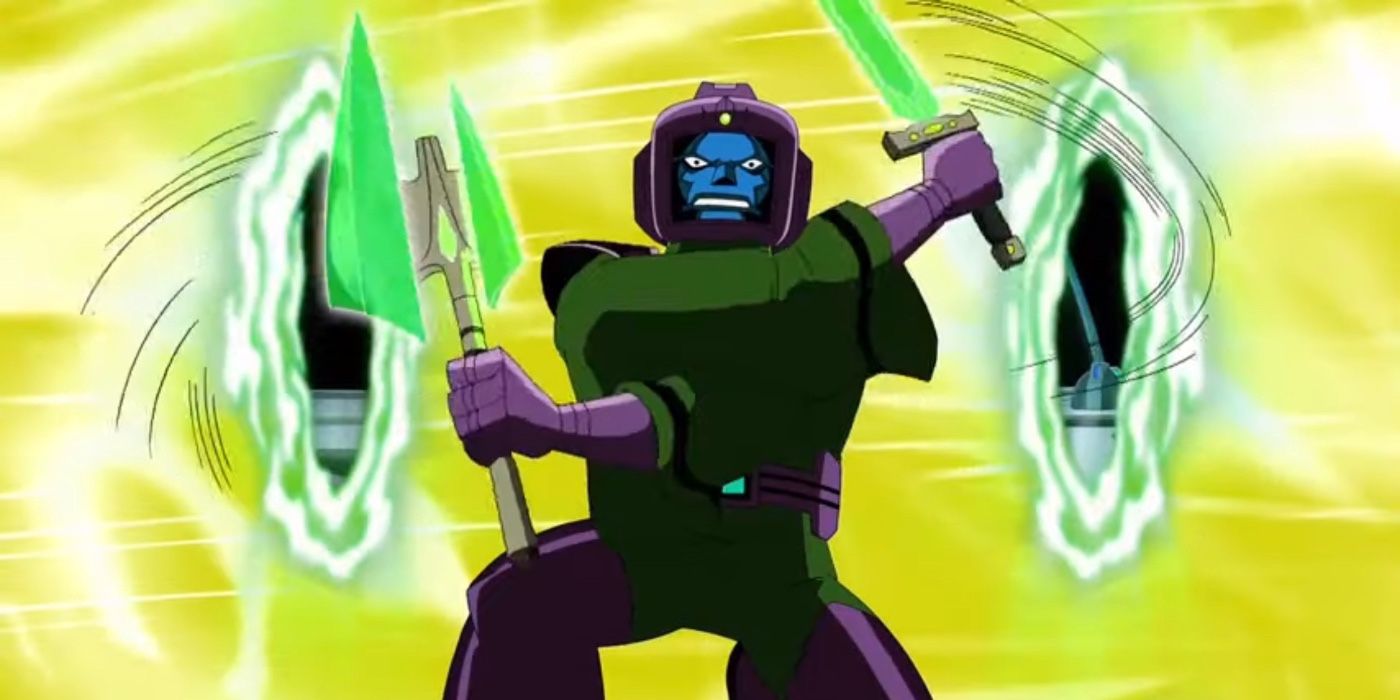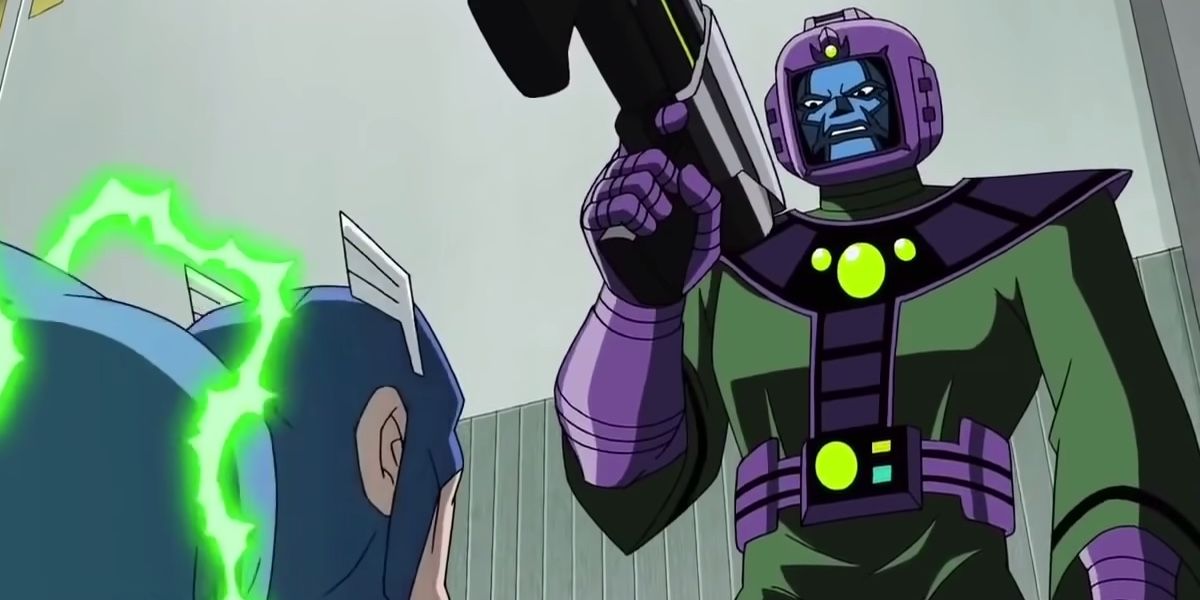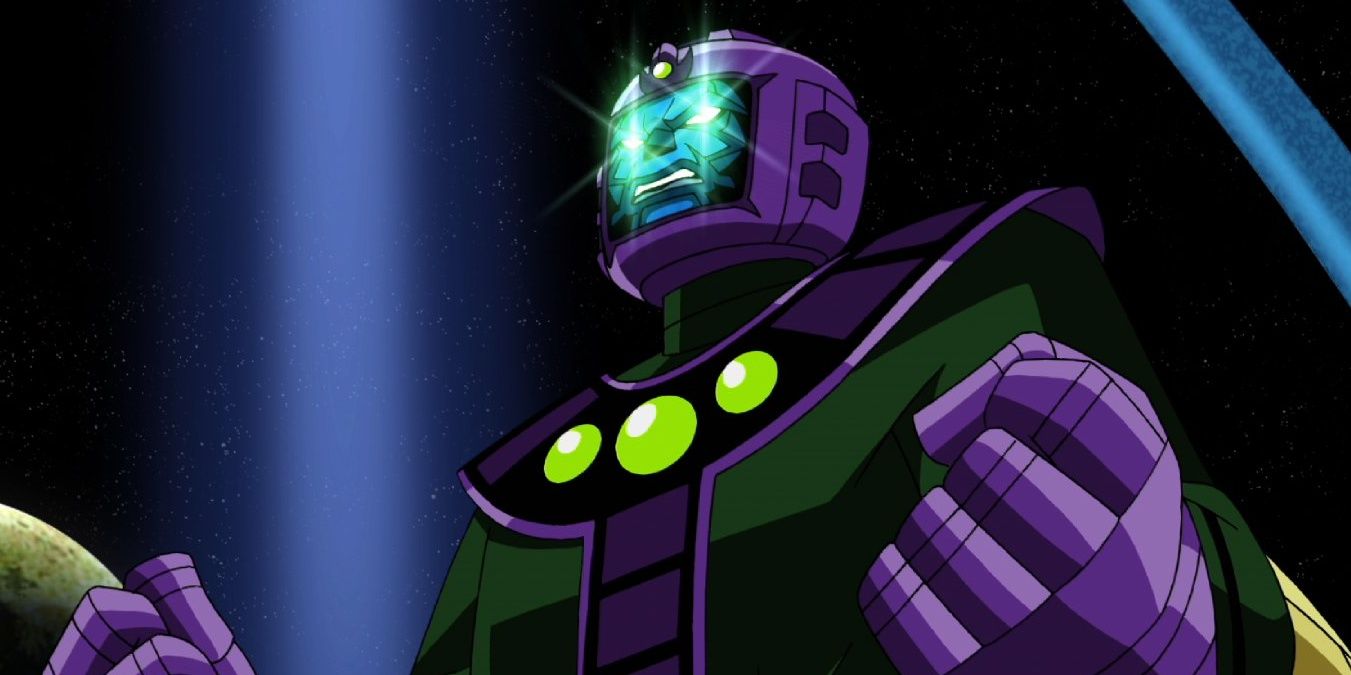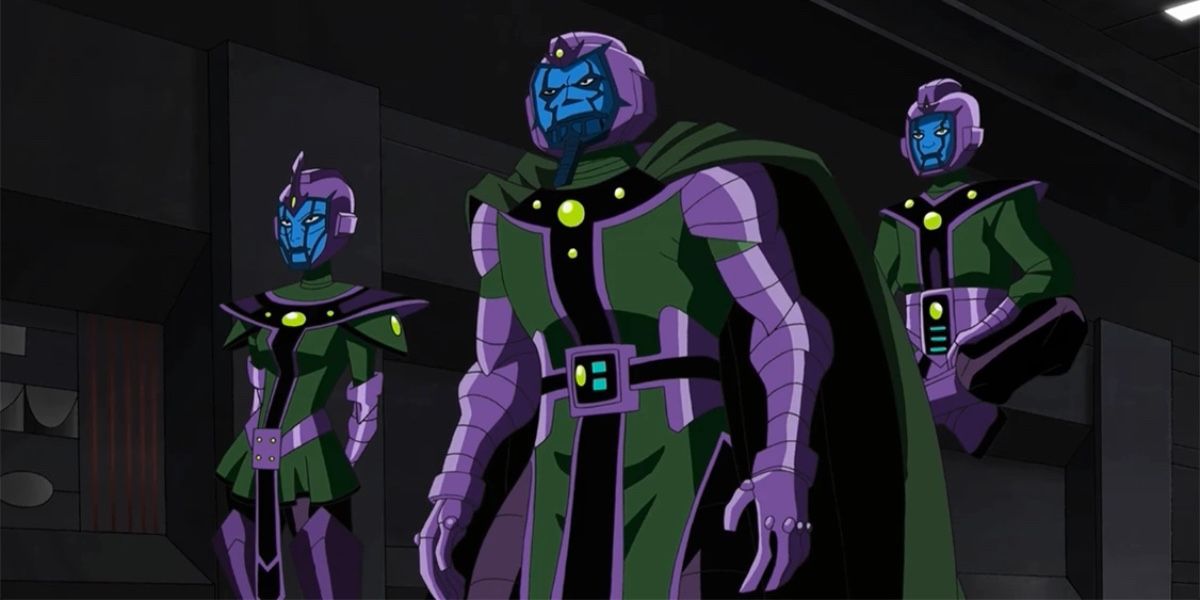Loki's season finale introduces Kang the Conqueror to the Marvel Cinematic Universe... sort of. Jonathan Majors made his surprisingly early MCU debut as He Who Remains, the Time Variance Authority's secret creator. He's a Kang Variant who "won" the Multiversal War against his alternate counterparts, then formed the TVA to safeguard time from himself, quite literally. He pruned countless branched timelines and sold the reprogramed TVA agents a fantastical cover-up story about "Time-Keepers" in the name of keeping all other Kang threats in check.
Sylvie ultimately unleashes these threats by killing He Who Remains out of her need for vengeance. However, while this introduction expertly sets up the the danger Kang poses, the real question is how the MCU intends to characterize "bad" Kang going forward. Fortunately, Marvel already has a solid framework to rely on: The Avengers: Earth's Mightiest Heroes, whose first season gave fans one of the best Kang the Conqueror interpretations to date.
Despite his status as an iconic Avengers villain, Kang is also frustratingly complicated to define, due in large part to his very convoluted backstory. The 31st century conqueror of Earth has lived across many eras and taken up multiple identities throughout decades of Marvel storytelling, from the ancient Egyptian Pharaoh Rama-Tut to the villainous Scarlet Centurion to Young Avengers member Iron Lad, a.k.a. Kang's younger self, Nathaniel Richards. Giving him a motive beyond world domination isn't impossible, as seen by the MCU's success at re-defining Thanos, but it will require stripping back Kang's origins and motives to feel simple, yet compelling enough that even casual Marvel fans can embrace him without getting confused.
What made Earth's Mightiest Heroes' Kang work so well was the show's clear understanding of his goals. When the Conqueror first appears in the episode "Meet Captain America," he's observing historical data files about Captain America's final mission against the Red Skull and Hydra before getting frozen in ice. As is soon revealed, Kang's obsession with Steve Rogers is deeply personal. Some unexplained temporal disturbance is disrupting the entire future Kang rules over as a result of some action Rogers takes after he is thawed out in modern times. Kang and his personal spaceship, the Damocles, manage to escape the anomaly before 41st century Earth is transformed into a barren, fiery wasteland, but not before his lover, Princess Ravonna Renslayer, is briefly caught in the disruption, thus rendering her vulnerable to timeline erasure. Stranded in the 21st century with Ravonna's life on the line, Kang vows to protect their future regardless of the ramifications it'll have on the present day.
Rather than delve too much into his past, Earth's Mightiest Heroes makes its Season 1 three-part Kang arc all about his mission and how it collides with the Avengers. Demonstrating advanced weaponry and technology capable of overpowering the entire team, Kang views his interference with time as justifiable since stopping Captain America's betrayal and preparing Earth for the upcoming Kree-Skrull war via conquest will save it from destruction. Kill Rogers, and he ensures the future's survival, albeit one still under Kang's rule.
When the Avengers interfere with this plan, he goes all in on conquering Earth a few centuries early, as it too will produce the desired outcome. In both cases, Kang operates under an easy to understand logic: this future will happen if certain actions aren't taken, so he's taking them while there's still time. However, like Loki's He Who Remains, Kang's methodology is amoral in service to what he perceives as benevolence. For him, there's little wrong with usurping an entire timeline all over again because a worst-case scenario already exists and, having witnessed it firsthand, he views the alternative as logically better.
By streamlining Kang's motives, The Avengers: Earth's Mightiest Heroes established its villain as a powerful threat while staying true to his core comic ethos in an unconvoluted manner. Even after successfully defeating him, the Avengers' resistance to Kang's warnings only results in further consequences, from the corruption of Ultron to Captain America being abducted and replaced by a Skrull imposter for Season 2's Secret Invasion arc.
Loki, with its space-time themes, has already achieved something similar. Sylvie's decision to kill the man behind the TVA curtain has set the multiverse into full effect, as Loki soon discovers upon finding a TVA with the Time-Keepers statues replaced by those of a Kang variant. This is exactly what He Who Remains warned about: he might be a villain, but destroying his bureaucratic organization's work only allows someone worse, or an infinite number of someones, to emerge as the new antagonist. The difference between them, he implies, goes beyond a lack of morals.
Not only should Marvel Studios keep the origins of Majors' evil Kang similarly streamlined, but they should tie his goals into a growing awareness of the multiverse amongst MCU characters. This plot device will certainly be expanded upon through shows and films like What If...?, Doctor Strange in the Multiverse of Madness and Ant-Man and the Wasp: Quantumania, all dealing with an infinite universe that theoretically features infinite Kangs. Thus, as characters become more aware of this new threat, it stands to reason that the Kangs will eventually see the Avengers as dangerous or even tragic foils, depending on their respective motives. This outlook was, after all, teased by Earth's Mightiest Heroes' Council of Kangs -- multiverse beings themselves -- in the character's only Season 2 appearance.
Loki helped set the stage for Kang the Conqueror's debut in ways a traditional film could not. Yet by pulling from The Avengers: Earth's Mightiest Heroes, Marvel can give Kang a set of personal stakes to make his malevolent actions feel deeply human. It's a trait that all the best MCU villains, Loki included, seem to have in common. And in a multiverse, anything's possible.
Majors will appear as Kang the Conqueror in Ant-Man and the Wasp: Quantumania, releasing Feb. 17, 2023.




